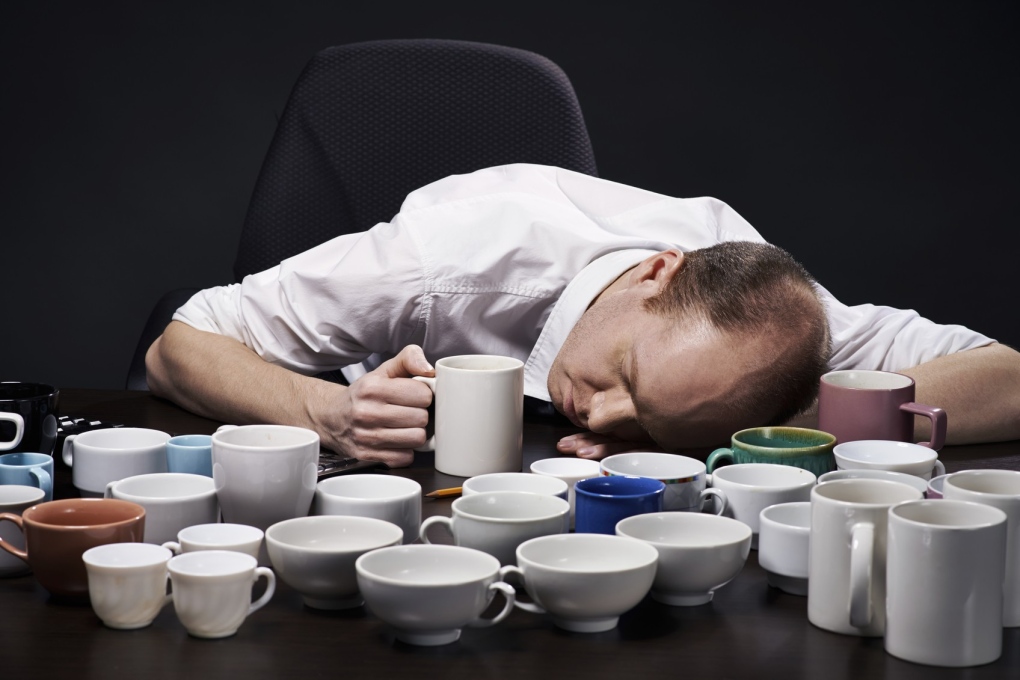Coffee and Sleep
By Jonathan “Quiggy” Quigg
This week I want to bring attention to our coffee drinking habits. First of all, damn, coffee is good! So tasty and wonderful to feel that boost of energy. But how much, how often and when we drink it can have a serious impact on our sleep – something we all need yet can fall to the wayside when a lot is on our plate – or our blood is 98% caffeine.
Caffeine blocks the release of natural chemicals that makes us feel sleepy. When that effect wears off, and our sleepy chemicals return in high quantities, we feel a crash. So, even though we may be able to crash and fall asleep after some late night sips of coffee, the caffeine remaining in our system is actually disruptive to our deep sleep. And it’s in our deep sleep that our body and mind really rejuvenate and recover. So, though our caffeine habits might seem like they don’t effect our sleep because we can fall asleep okay, they can have a serious impact on the quality of our sleep. To put it in perspective, 6 hours of good, deep sleep is going to be better than 9 hours of disrupted, caffeinated “shallow” sleep. You will wake up feeling a lot more rested, energized and ready for the day, when you get good quality, deep sleep. This doesn’t happen when we are drinking coffee late in the day.

Caffeine has a half-life of 6 hours, meaning that the amount of it left in your system is halved every 6 hours. So if you are drinking coffee at 6pm, you still have half of that caffeine content in your body at Midnight. That’s a lot and one needs to consider the effect that may have on your sleep and your next day.
I know that it can become a vicious cycle, and one that’s hard to break out of. We need coffee to feel awake then sleep poorly and wake up needing it again to get by. But by recognizing what’s happening, there are some small adjustments we can make to get better rest.
- Replace with tea. Especially in the afternoon. Black tea has a fair amount of caffeine in it still and green tea might be enough on its own to give you the boost you need too.
- Try to set a cut off for coffee drinking time. I don’t drink after 12pm (which means ¼ of the caffeine in that cup of coffee is still in my system at Midnight when I go to sleep) – but you have to choose what is reasonable and doable for you.
- Limit the number of cups a day. You have to start by KNOWING how many you drink a day. If you don’t you have to start by counting. Even the act of counting can bring enough awareness to chill out a bit. From there, try drinking one less cup a day to start small.
- Replace some of your coffee habit with decaf. Coffee tastes good! Sometimes enjoying the taste, or the ritual, is a big part of what’s drawing us in. So this way we can still enjoy it without the negative effect on our sleep. And you may even still get a bit of a placebo effect and boost from the decaf version.
- Try something else to reenergize. Coffee isn’t the only way to recoup and get a boost. Go for a walk. Do some exercise. Lie down and listen to some music. Power nap. Have a dance party. Meditate. There are many natural ways to reenergize ourselves that don’t involve caffeine. If you can replace one cup of coffee a day with an alternative like this, you might notice a huge difference.
Though our relationship with coffee cannot change overnight, the hope here is to inspire an honest reflection of your habits and encouragement to start making some small adjustments in the direction of healthier habits. Your sleep will thank you.